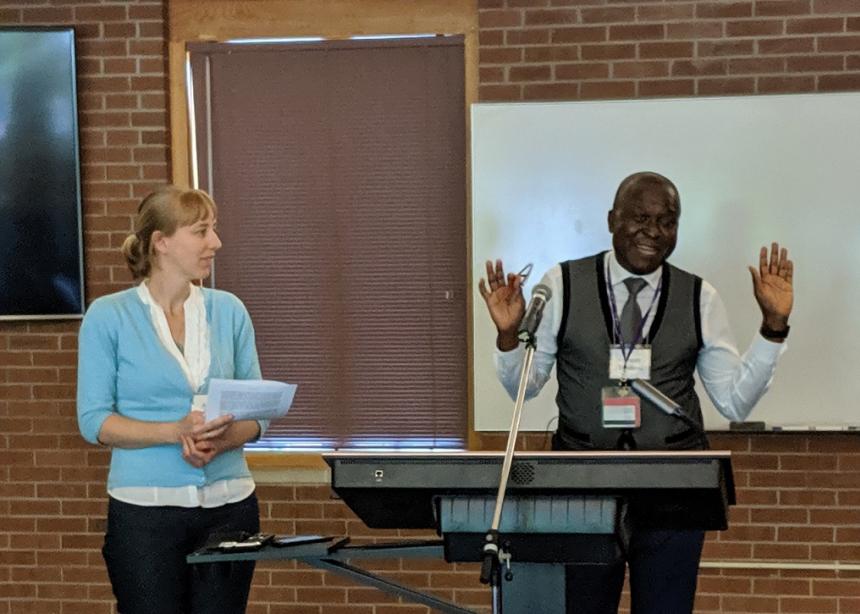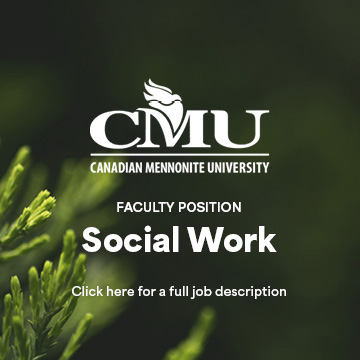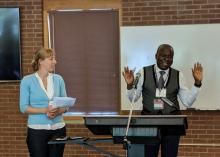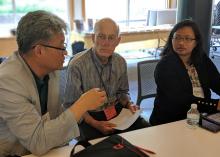More than 30 people from 12 countries gathered at Goshen College on June 17-19 to talk about gathering and preserving the sources that are crucial to the history of the global Anabaptist-Mennonite church. The group, composed of historians, pastors, archivists and others, shared a keen interest in keeping the history of the global church alive in its congregations and its people.
John D. Roth organized the gathering, called “Power and Preservation: Enabling Access to the Sources behind Our Stories” as an initiative of the Institute for the Study of Global Anabaptism (ISGA). According to Roth, the idea for the symposium was born in conversations with Anicka Fast, a doctoral student whose research on Mennonite missions in Congo was made difficult by limited or restricted access to archives and by the precarious condition of many documents relevant to the church’s history. Together with Bruce Yoder, who recently completed a PhD on the history of Mennonite missions in Nigeria, the organizers sought to broaden the discussion regarding preservation and access, to include the larger question of how historical narratives shape the identity of the global church.
“The global church,” said Patrick Obonde, director of missions at the Anabaptist Leadership Education Centre in Kenya, “works best when all her parts are engaged in sharing their stories.”
Over the course of three days, participants listened to presentations from 16 individuals about the state of the historical sources and storytelling in African, Asian, North American, and Latin American churches and organizations. Presenters addressed issues of resources, access, and the level of commitment to preserving history that they see in their contexts. Though each raised unique concerns, several common themes began to emerge.
For many groups, a first priority is to focus on oral history. Digitizing sources has great potential for preservation and increased accessibility, but also this requires significant financial resources. Repeatedly, the theme of power arose, with discussions of how the love of power or fear of its loss can make access to historical documents difficult. In many cases, the problem is simply a tradition of localism. “Everyone feels comfortable with how things are,” said Ursula Giesbrecht, archivist of the Menno Colony in Loma Plata, Paraguay. “It is always difficult to move away from your customs.”
At the end of the symposium, the group drafted a statement that synthesized the themes addressed at the gathering. This statement affirms the importance of historical identity, the urgency of recording stories, and the importance of equal and open access to sources in creating a healthy church community. It also recognizes specific barriers faced by the church in preserving and providing access to historical sources, and it concludes with a list of commitments by the participants in working to achieve this goal.
Pamela Sari, a recent Ph.D. student at Purdue University who has done research on the JKI church of Indonesia, is hopeful about the future of Mennonite archives. “The church is truly gifted with leaders, missionaries, members, scholars, archivists who care deeply about its history. I pray that God will continue to increase our capacity to stay planted in the love and truth of Christ and His Word.”







Add new comment
Canadian Mennonite invites comments and encourages constructive discussion about our content. Actual full names (first and last) are required. Comments are moderated and may be edited. They will not appear online until approved and will be posted during business hours. Some comments may be reproduced in print.